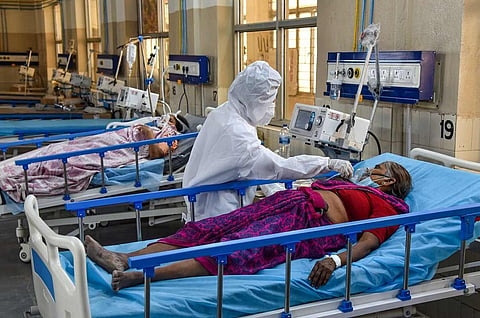Mucormycosis claims four lives in Kerala
Four patients in Ernakulam district, who were being treated for mucormycosis, have died. Mucormycosis is a fungal infection reported in many COVID-19 patients. In Kerala, six patients were being treated in the district for the fungal infection. Of the deceased, two patients — a 50-year-old and a 77-year-old are Ernakulam natives. The other two were from Pathanamthitta and were receiving treatment in Ernakulam.
Two more patients are currently receiving treatment in the state — one at a private hospital and another patient at the Government Medical College, Kottayam. Ernakulam district had constituted a team of doctors to handle all mucormycosis cases. The team comprises experts from the Ernakulam General Hospital. The team includes doctors from ENT, General Medicine, Ophthalmology and neurology departments.
On May 21, Kerala declared mucormycosis as a notifiable disease under the Epidemic Diseases Act, 1897, following a directive from the Union Health Ministry to all states. This makes it mandatory for all government and private hospitals and smaller health facilities to report all cases of mucormycosis to the Health Department and to the Integrated Disease Surveillance Programme.
Many cases of mucormycosis have been reported in COVID-19 patients, especially those who were on steroids during treatment of the disease and those with diabetes. Patients with a compromised immune system are particularly vulnerable to the fungal infection.
Caused by mucormyete molds, organisms that are present in the air, leaves, piles of compost, soil and rotting wood, mucormycosis occurs when the fungus infects your central nervous system, eyes, sinuses, lungs, etc. However, it is important to note that not everyone who is exposed to the fungus will get infected.
People with diabetes (especially with diabetic ketoacidosis), cancer, who have had an organ transplant or stem cell transplant, neutropenia (low number of white blood cells), long term corticosteroid use, iron overload in the body, skin injuries due to surgery, burns or wounds, prematurity and low birth weights are more vulnerable to getting infected by mucormycosis.
Research is yet to establish a clear link between mucormycosis and COVID-19. However, most black fungus infections recorded in the first and second waves of the pandemic in India have been in people who recovered from COVID-19.

